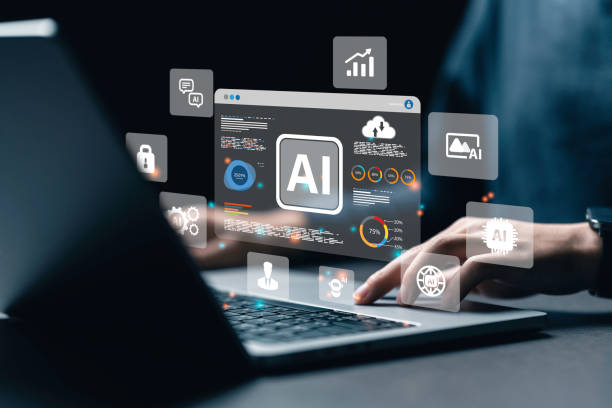We will embark on an enthralling journey through the realm of artificial intelligence (AI). In this episode, we delve into the past, present, and future of AI, shedding light on its ethical implications, revolutionary advancements, and enduring challenges. Join us as we navigate the ever-evolving landscape of AI and reflect on its profound impact on society.
Tracing the Evolution of Artificial Intelligence (AI)
Artificial intelligence finds its origins in ancient contemplations of creating intelligent machines, with notable thinkers pondering this concept. However, it wasn’t until the 20th century that AI began to crystallize as a scientific discipline. From Alan Turing’s groundbreaking work on computing to the development of neural networks and deep learning algorithms, AI has progressed through significant milestones, shaping its evolution.
Ethical Considerations Shaping AI Development
In the era of advancing AI technology, ethical considerations loom large. Issues such as data privacy, algorithmic bias, and the socio-economic impacts of automation are at the forefront. As we endeavor to utilize AI for societal betterment, addressing these ethical dilemmas with prudence and foresight is paramount.
Revolutionary Breakthroughs in AI Research
Recent years have witnessed unprecedented strides in AI research, catapulting the field to new heights. Innovations in natural language processing, computer vision, and neural network architectures have unlocked previously unimaginable capabilities. These breakthroughs promise to redefine industries across healthcare, finance, transportation, and entertainment, ushering in a new era of technological transformation.
Harnessing AI to Tackle Global Challenges
In an age riddled with complex global issues, AI emerges as a potent tool for positive change. From predictive analytics in healthcare to optimizing resource management for sustainable development, AI offers innovative solutions to pressing challenges like climate change, healthcare inequality, and economic disparity. Yet, realizing the full potential of AI necessitates collaborative efforts and a steadfast commitment to leveraging technology for the collective good.
Addressing the Challenges and Limitations of AI
Despite its immense promise, AI grapples with various challenges and limitations. Technical hurdles, including data scarcity and algorithmic bias, pose significant obstacles to progress. Moreover, societal concerns surrounding job displacement and ethical governance raise pertinent questions about the responsible deployment of AI technologies. Navigating these challenges requires a nuanced approach that balances innovation with ethical considerations and societal well-being.
Envisioning the Future of AI: Opportunities and Uncertainties
As we gaze into the future, the trajectory of AI unfolds with boundless possibilities and inherent uncertainties. From the proliferation of autonomous systems to the pursuit of artificial general intelligence (AGI), the implications of AI are far-reaching. However, ensuring that AI remains aligned with human values and aspirations is imperative. As we venture into uncharted territory, a deliberate and conscientious approach is essential to steer AI towards a future that benefits humanity.
Conclusion:
As we conclude our exploration of artificial intelligence, we are reminded of its transformative potential and profound impact on society. From its nascent origins to its current state of unprecedented advancement, AI holds the key to shaping a brighter future for humanity. Yet, this journey is fraught with ethical dilemmas, technological challenges, and uncertainties. By navigating the complexities of AI with integrity, empathy, and foresight, we can harness its power to create a more equitable and sustainable world. Thank you for joining us on this enlightening voyage into the future of artificial intelligence.
Need help launching your podcast?
Schedule a Free Podcast Strategy Call TODAY!


Recent Comments